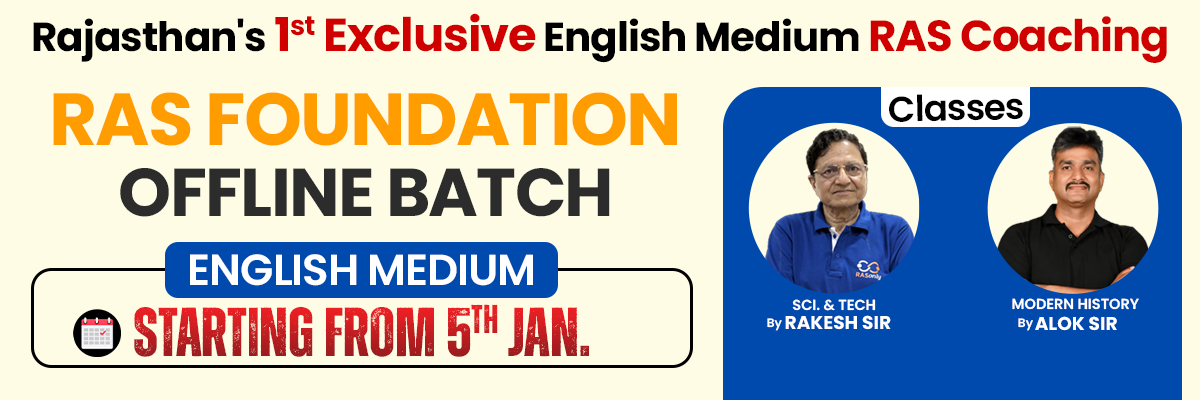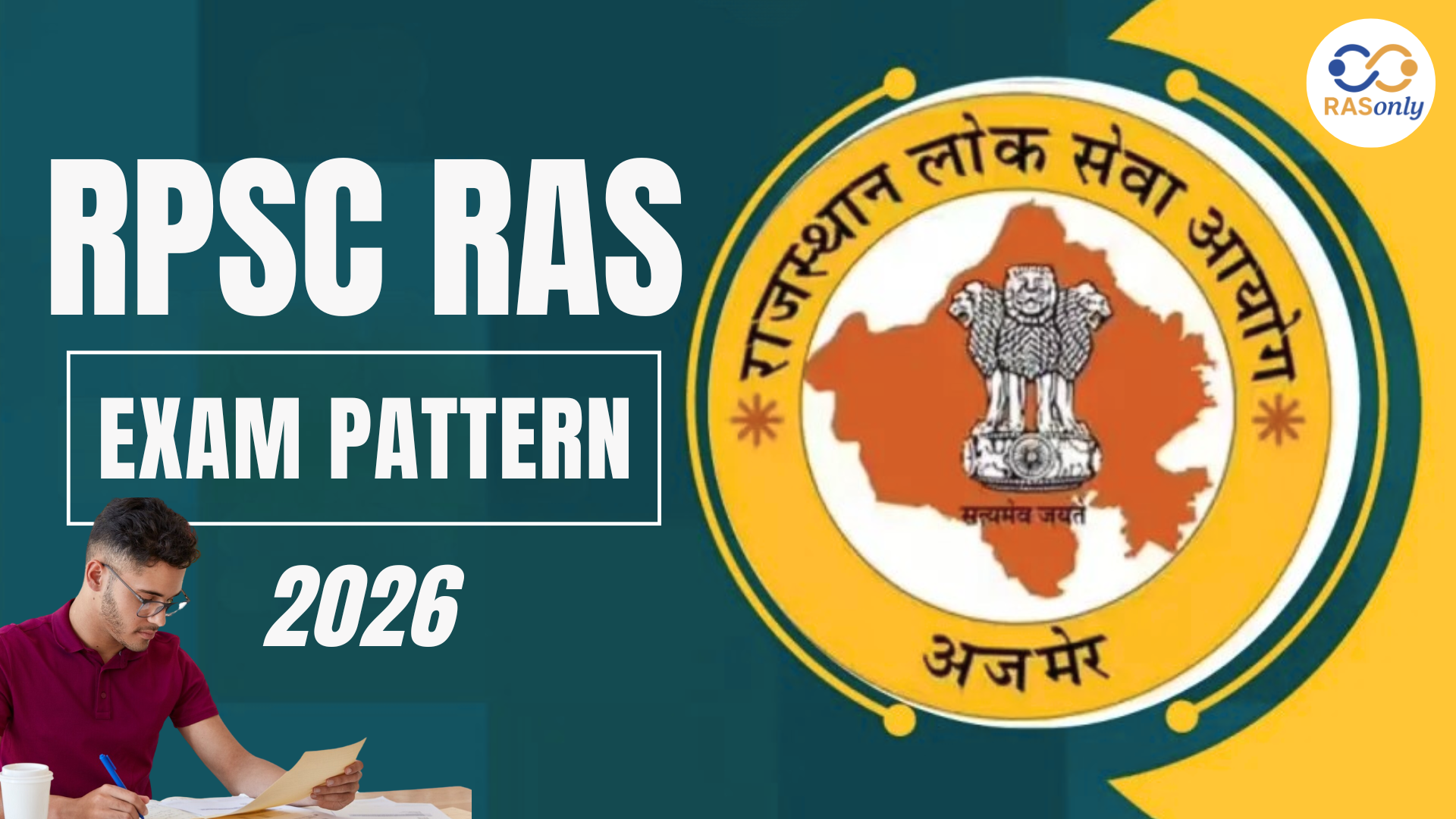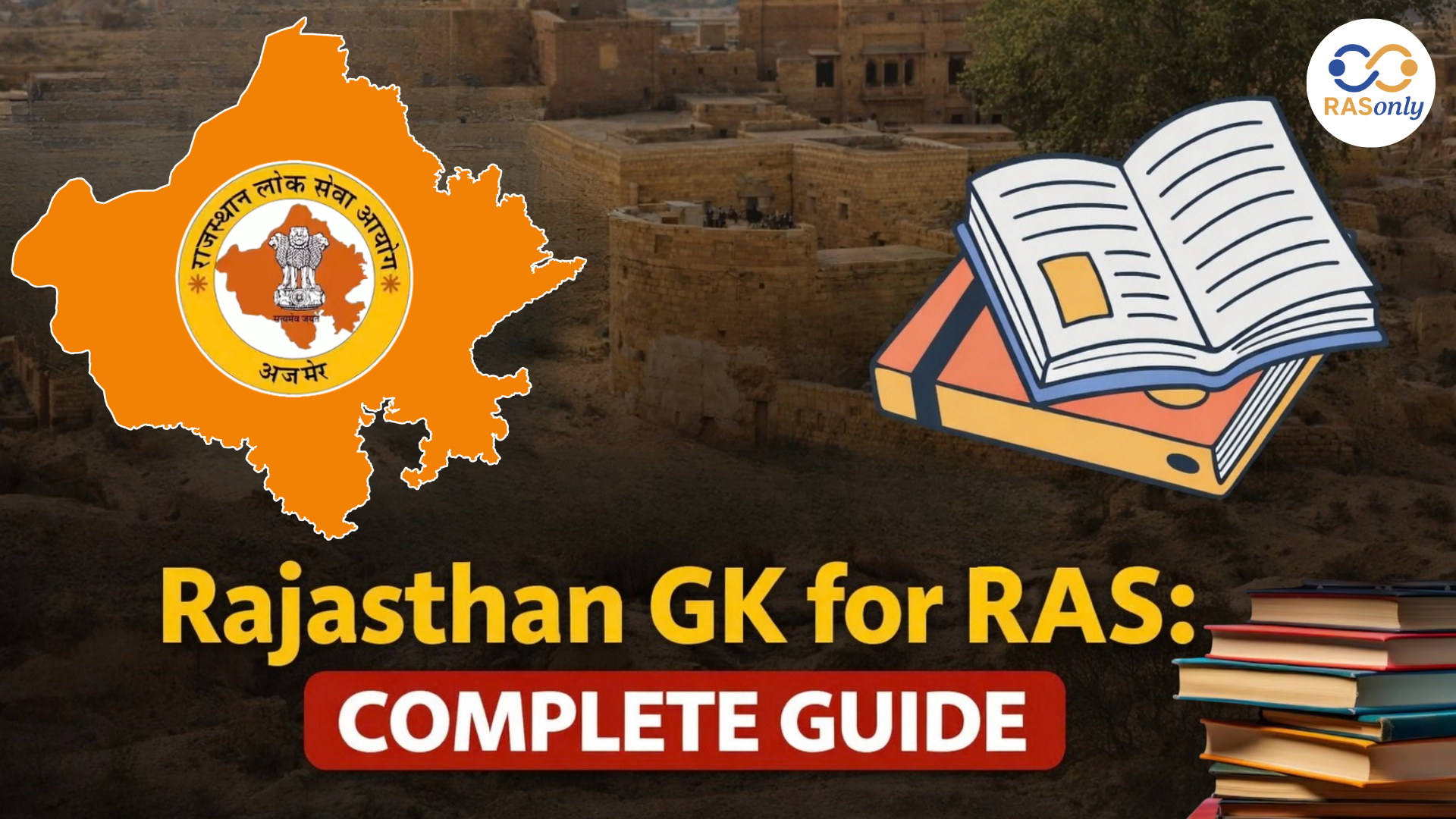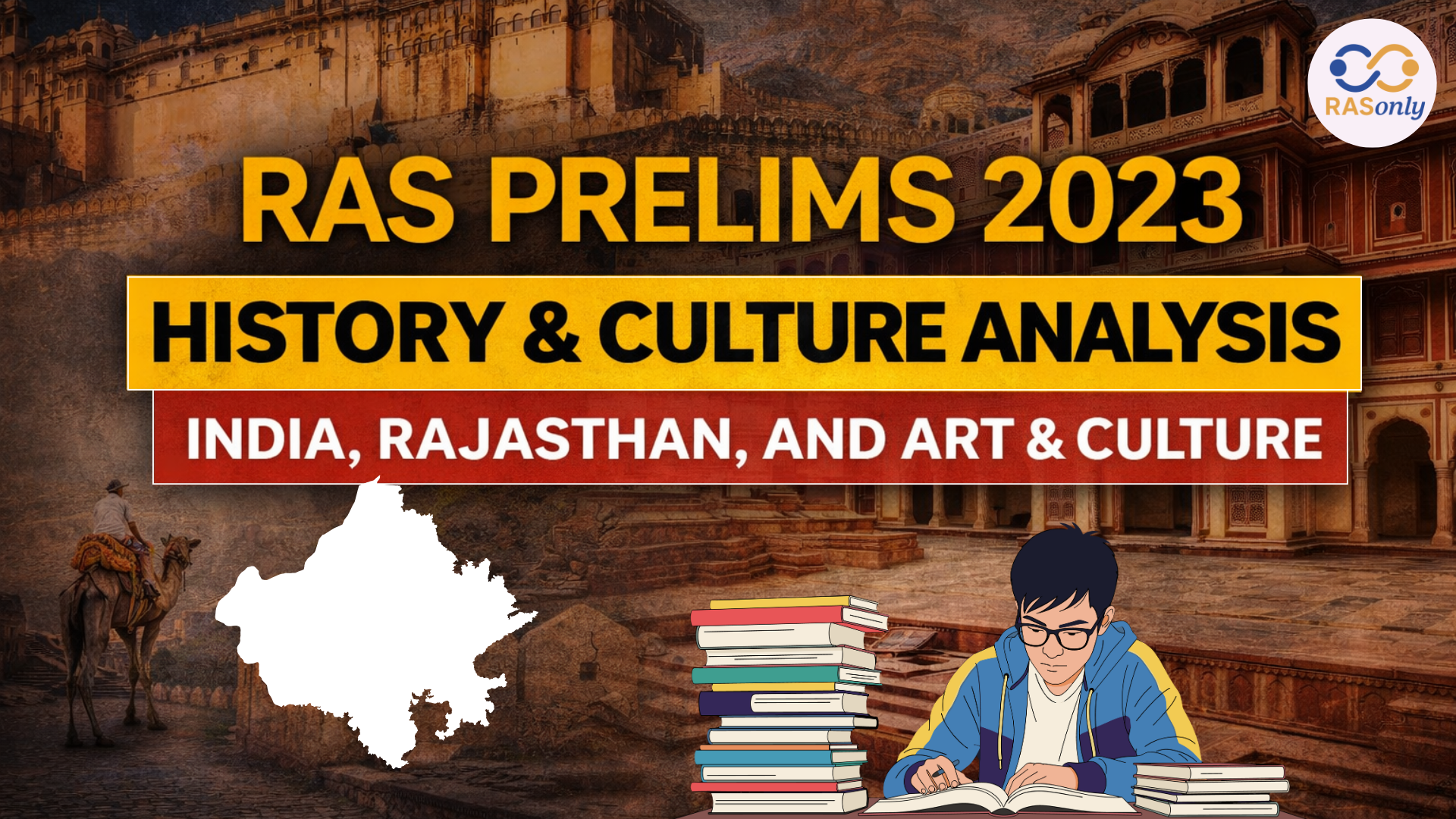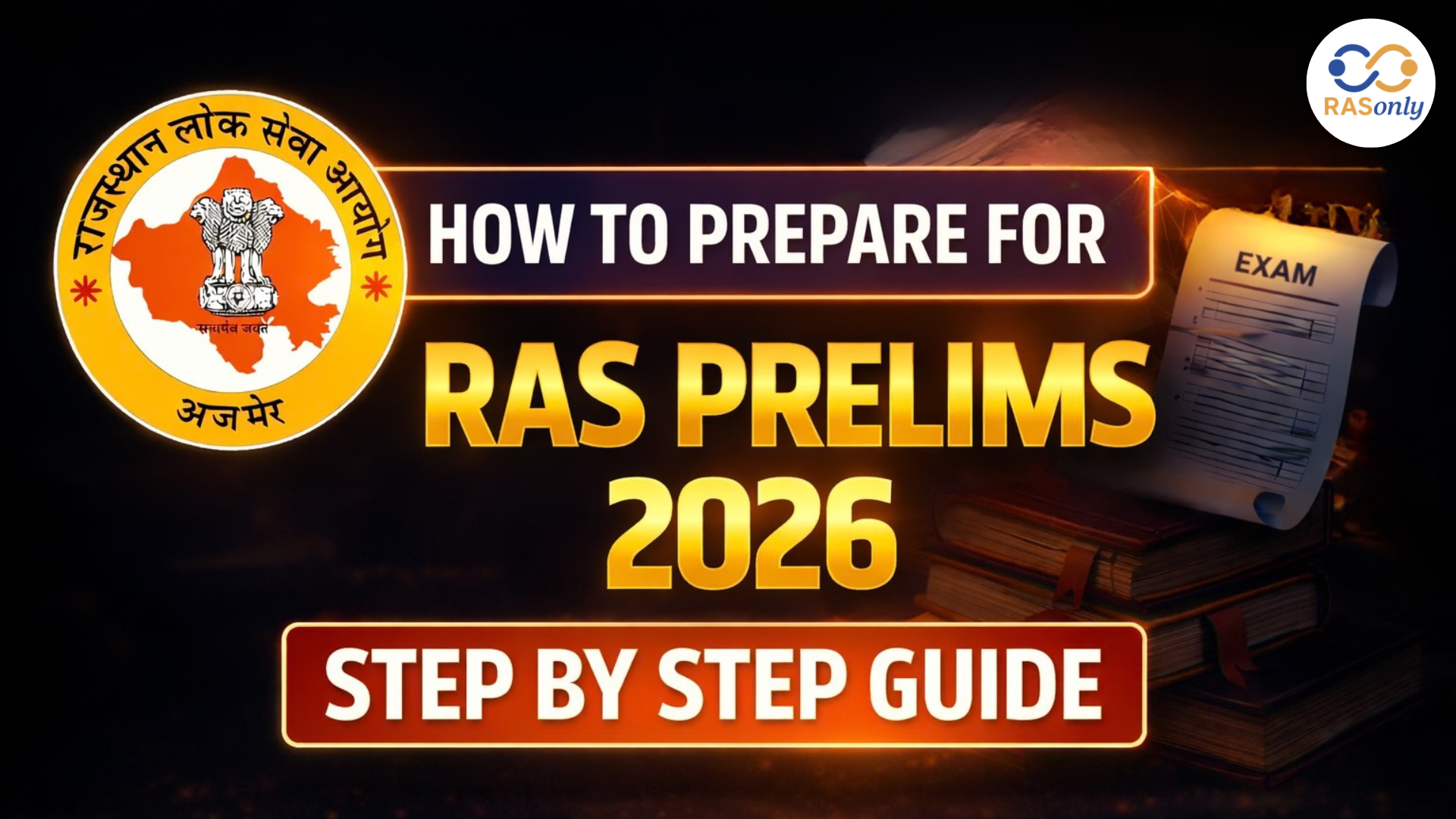RPSC RAS 2026 Subject Wise Exam Pattern for Prelims, Mains & Interview Details
- >
- RAS Preparation Resources
- >
- RAS Mains Paper 3 - Comprehensive Science & Technology Notes
RAS Mains Paper 3 - Comprehensive Science & Technology Notes

Get in Touch with RASonly!


RAS Mains Paper 3 consists of four compulsory sections that are worth 200 marks over three hours of testing time. Students need to complete descriptive tasks, which include short (2 marks), medium (5 marks), and extended response (10 marks) questions throughout the exam. The Mains exam includes three General Studies papers at the graduation level and two paper assessments at the senior secondary level. All questions in each paper include different styles, but short and medium-answer questions come with specified word limits. The final merit rating comes from combining Personality Test results with the Mains examination scoring.
What is RAS Mains Paper 3?
The Science and Technology segment of RAS Mains Paper 3 serves as the essential section that evaluates candidate comprehension of modern scientific discoveries alongside their deployment throughout multiple sectors. The evaluation assesses how well a candidate can process intricate technological principles alongside their capacity to apply these skills to administrative implementations in governance systems.
Science and Technology in RAS Preparation
| Aspect | Details |
|---|---|
| Primary Focus | Science and Technology |
| Topics Covered | Biotechnology, Space Technology, Health Technology, Environmental Science, Emerging Technologies, Technological Impact on Governance |
| Exam Structure | Descriptive and analytical questions. |
| Weightage | Significant in the overall scoring of RAS Mains, impacting the final selection process. |
| Preparation Strategy | Requires an in-depth understanding of current advancements and their practical applications in administrative and policy-making contexts. |
| Significance | Not only important for clearing the RAS exam, but also for public administration roles, where technological insights are essential in decision-making. |
Key Topics in Science and Technology for RAS Mains Paper 3
The success in RAS Mains Paper 3 requires students to deeply understand the primary Science and Technology domains, which regularly appear in the test. These subjects represent the major areas of focus for your preparation work.
| Topic | Subtopics to Focus On |
|---|---|
| Biotechnology | Genetic Engineering, GMOs, Medical Biotechnology, Bioethics, Agricultural Biotechnology |
| Space Technology | ISRO Missions, Satellite Applications, Mars Mission, Space Exploration, Commercialization of Space |
| Environmental Science | Pollution Control, Climate Change, Renewable Energy, Sustainable Development, Environmental Policies |
| Health Technology | AI in Healthcare, Telemedicine, Medical Devices, Vaccines, Public Health Tech |
| Emerging Technologies | AI & ML, Robotics, Blockchain, 5G, IoT, Smart Cities |
| Technology in Governance | E-Governance, Digital India, Cybersecurity, Technology in Agriculture, Education, and Healthcare Reforms |
The above table provides key topics for the RAS Mains paper 3, which are important for candidates to succeed in the examination. Moreover, the following points guide you on how to approach these topics effectively;
- Linking with Current Affairs: All these topics directly relate to both current scientific advancements and new technological innovations. The effective answer to questions requires staying informed about the most current reports through reputable news outlets that include scientific journals, along with government reports.
- Real-Life Applications: While studying these topics, focus on how they apply through governance practices and public administration, and societal development methods. Your understanding of theory-practice connections must develop to describe questions effectively.
How to Prepare for RAS Mains Paper 3: Science and Tech
While preparing for RAS Mains paper 3, science and technology, the combination of conceptual clarity with awareness of current technological development is required. The success path for Paper 3 requires students to integrate well-developed concepts and the current understanding of scientific advances and technological developments. Students should concentrate their efforts on understanding how technology impacts governance and real-world examples, with a commitment to structured answer organization. Here's a step-by-step preparation plan.
RAS Exam Preparation Steps
| Step | Focus Area | Description |
|---|---|---|
| 1 | Understand the Syllabus | Break the syllabus into themes like Biotech, Space Tech, Governance, etc. |
| 2 | Build Conceptual Foundation | Use NCERTs, India Year Book, and standard science magazines. |
| 3 | Follow Current Affairs | Track news, editorials, and government tech initiatives regularly. |
| 4 | Link Tech with Governance | Study how tech solves administrative problems (e.g., e-governance tools). |
| 5 | Practice Answer Writing | Write regularly, use diagrams, follow word limits, and use structured formats. |
| 6 | Analyze Previous Year Papers | Identify trends and frequently asked topics to prioritize key areas. |
| 7 | Revise Smartly | Use short notes, flowcharts, and one-pagers for quick revision. |
| 8 | Take Mock Tests and Join Peer Discussions | Evaluate progress, get feedback, and stay motivated through group learning. |
Previous Year Answer Copies and Trends
Understanding RAS Mains Paper 3 Science and Technology through previous year question papers and topper answer samples enables candidates to grasp the test format and typical questions, and effective response methods. Aspirants should focus their preparation efforts on target areas by recognizing recurring themes, which include Biotechnology plus AI in governance, as well as Climate Technology. Analyzing answer copies from successful RAS toppers enhances candidates' abilities to organize their responses while integrating actual examples into their submissions.
We have made available the RAS Mains Topper Answer copies, which will provide you with key insights about the RAS Mains Paper 3 Science and Technology in English and Hindi.
Common Mistakes to Avoid While Preparing
Several applicants create unnecessary obstacles for themselves through avoidable mistakes while getting ready for the RAS Mains Paper 3 within the Science and Technology subject. The mistakes you make during your study will slow your academic advancement while decreasing your test results. Efficient and effective preparation requires identifying and fixing these typical mistakes to enhance performance.
- Ignoring Current Affairs: The most common mistake of aspirants while preparing for the RAS Mains Paper 3 is solely relying on static content without regularly updating their knowledge of recent technological advancements.
- Neglecting Practical Applications: Mere knowledge of theoretical models becomes less effective when students fail to link them to practical examples involving governance implementation.
- Overloading on Information: Students who try to condense many excessive details, particularly from specialized areas, while ignoring crucial topic fundamentals and their corresponding administrative aspects, will likely waste time and create confusion.
- Not Practicing Answer Writing: When students do not practice writing answers within timed conditions, it produces a negative impact on their ability to organize exam content properly during the test.
- Overlooking Revision: Regular revision, along with last-minute cramming, must be avoided because it will create holes in your knowledge base, which reduces your exam performance.
Resources for RAS Mains Paper 3 Preparation
An effective preparation for RAS Mains Paper 3 requires students to use both a wide variety of study resources and updated content. The use of trusted resources helps students both develop conceptual understanding and maintain awareness of recent technological developments, as well as their governance applications. The following essential material will assist your preparation process;
RAS Answer Copies for Preparation
| Particulars | Download Resource Link |
|---|---|
| Sahilesh Khairva [Rank 2A- 2016] GS Paper 3 Main Answer Copy (English) | Download Copy |
| Om Singh Shekhawat [Rank 61- 2013] GS Paper 3 Main Answer Copy (English) | Download Copy |
| Abhishek Yadav [2016] GS Paper 3 Main Answer Copy (Hindi) | Download Copy |
| Participant 300089 [2021] GS Paper 3 Main Answer Copy (Hindi) | Download Copy |
Check more copies from here
Conclusion
RAS Mains Paper 3: Science and Technology presents essential material for the examination, which demands both theoretical mastery and practical expertise in governing through science and technology. Achieving success with Paper 3 requires complete comprehension of biotechnology, together with space technology, along with understanding emerging technologies, coupled with regular updates on contemporary advancements. Success in RAS Mains Paper 3: Science and Technology requires candidates to work with practical examples throughout their preparation, while managing their study time adequately and developing clear writing strategies for answering questions. Continuous improvement through mock tests and resource selection, along with consistent revisions, enables candidates to deal successfully with the exam questions and achieve their goals in the examination. The main elements for achieving success include being consistent along developing strategic preparation plans.
FAQs
Post Category
- RAS Salary
- Result
- RAS Admit Card
- RAS Job
- RAS Cutoff
- Preparation Tips
- RAS Answer Key
- RAS Exam Analysis
- RAS Syllabus
- RAS Previous Year Papers
- RPSC RAS Exam Pattern
- RAS Interview
- RAS Mains Exam Date
- RAS Vacancy
- RAS Test Series
- RAS Best Books
- RAS Preparation Resources
- RAS Coaching Centre
- History
- Polity
- Geography
- Economics
- Science
- Art and Culture
- RPSC RAS Application Form
- RPSC RAS Notification
RASonly Interview Guidance Program

Mr. Ashok Jain
Ex-Chief Secretary Govt of Rajasthan
- IAS officer of the 1981 batch, Rajasthan cadre.
- Passionate about mentoring the next generation of RAS officers with real-world insights.
- Got retired in Dec 2017 from the post of Chief Secretary of the state of Rajasthan.

Mr. Guru Charan Rai
Ex-ASP / SP in Jaisalmer
- Guru Charan Rai, IPS (Retd), retired as Inspector General of Police (Security), Rajasthan, Jaipur in 2017.
- Served as ASP and SP in Jaisalmer, Nagaur, Sri Ganganagar, Sawai Madhopur, Dausa, Sikar, and Karauli.
- He also held key positions as DIGP and IGP in the Law and Order division.

Mr. Rakesh Verma
Ex-IAS Officer, B.Tech, MBA, and M.A. (Economics)
- IAS officer of the 1981 batch and retired in Chief Secretary Rank.
- Civil servant of high repute and vast experience.
- Has been teaching UPSC CSE subjects for the last six years.
Related Post
Daily Current Affairs for RAS Exam Preparation 2026
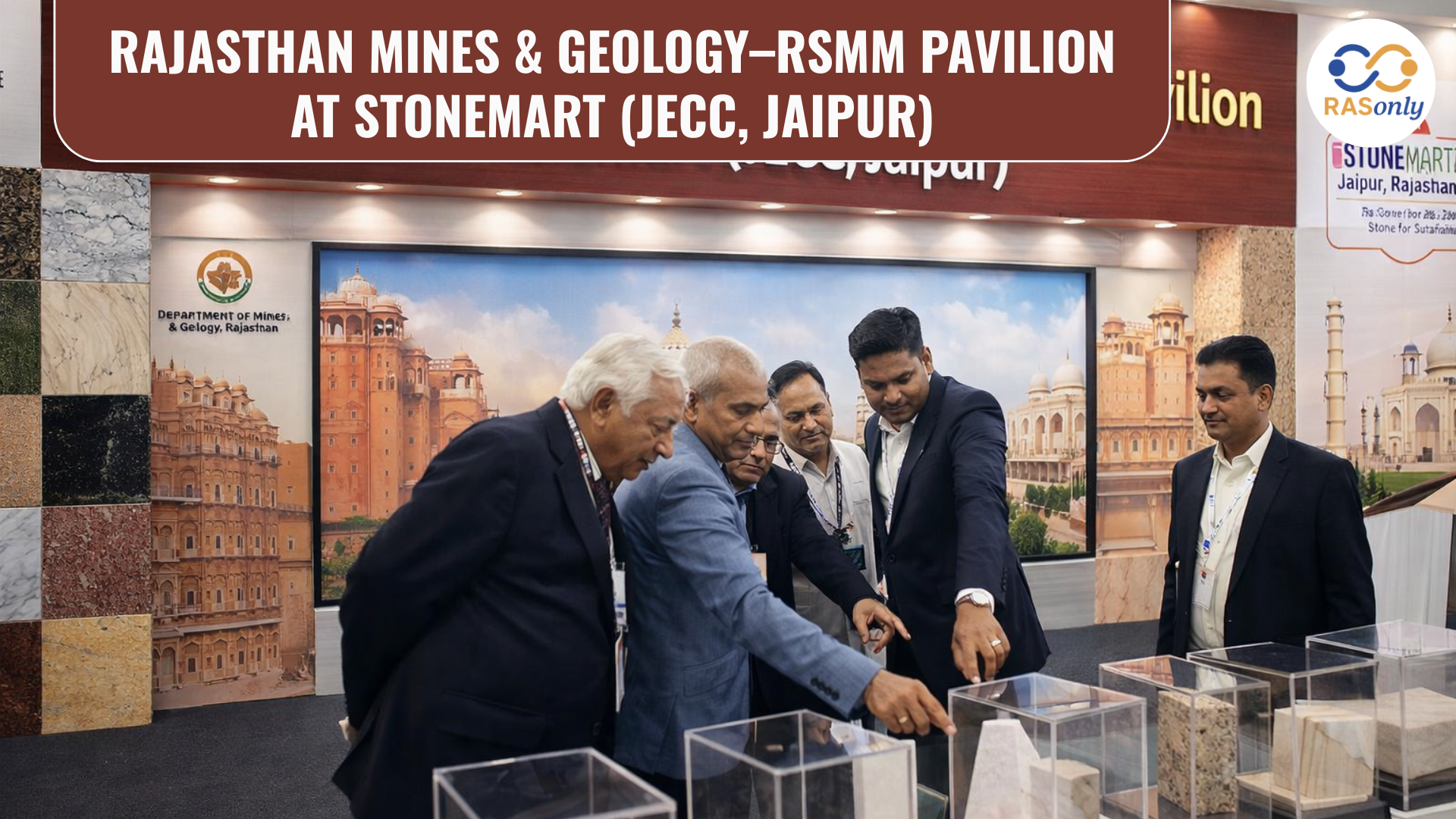
Rajasthan Pavilion Shines at Stone Mart Jaipur 2026
February 07, 2026
Rajasthan Achieves 3,000 MW Under PM-KUSUM Scheme
February 07, 2026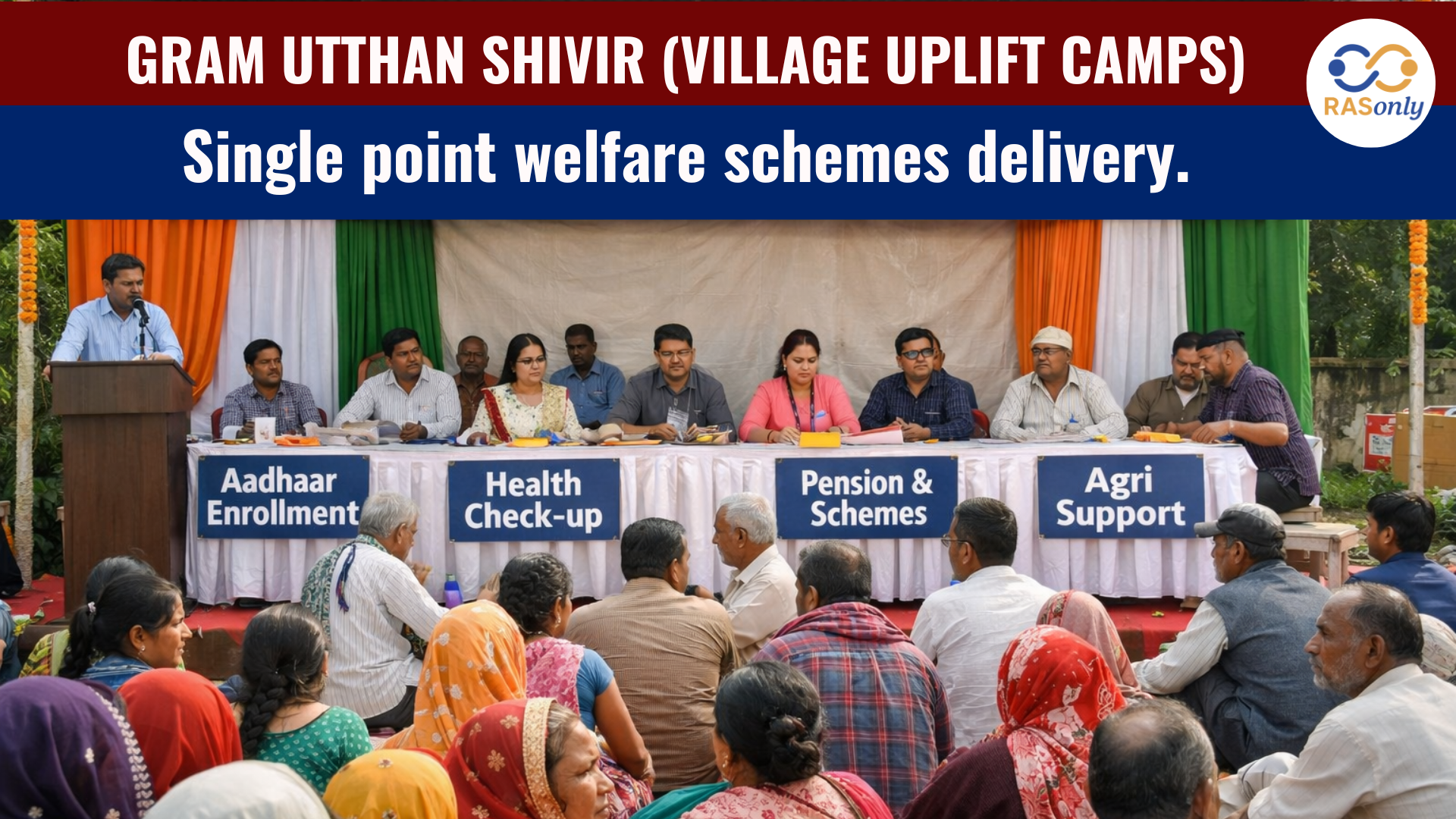
Gram Utthan Shivirs Strengthen Rural Governance in Rajasthan
February 07, 2026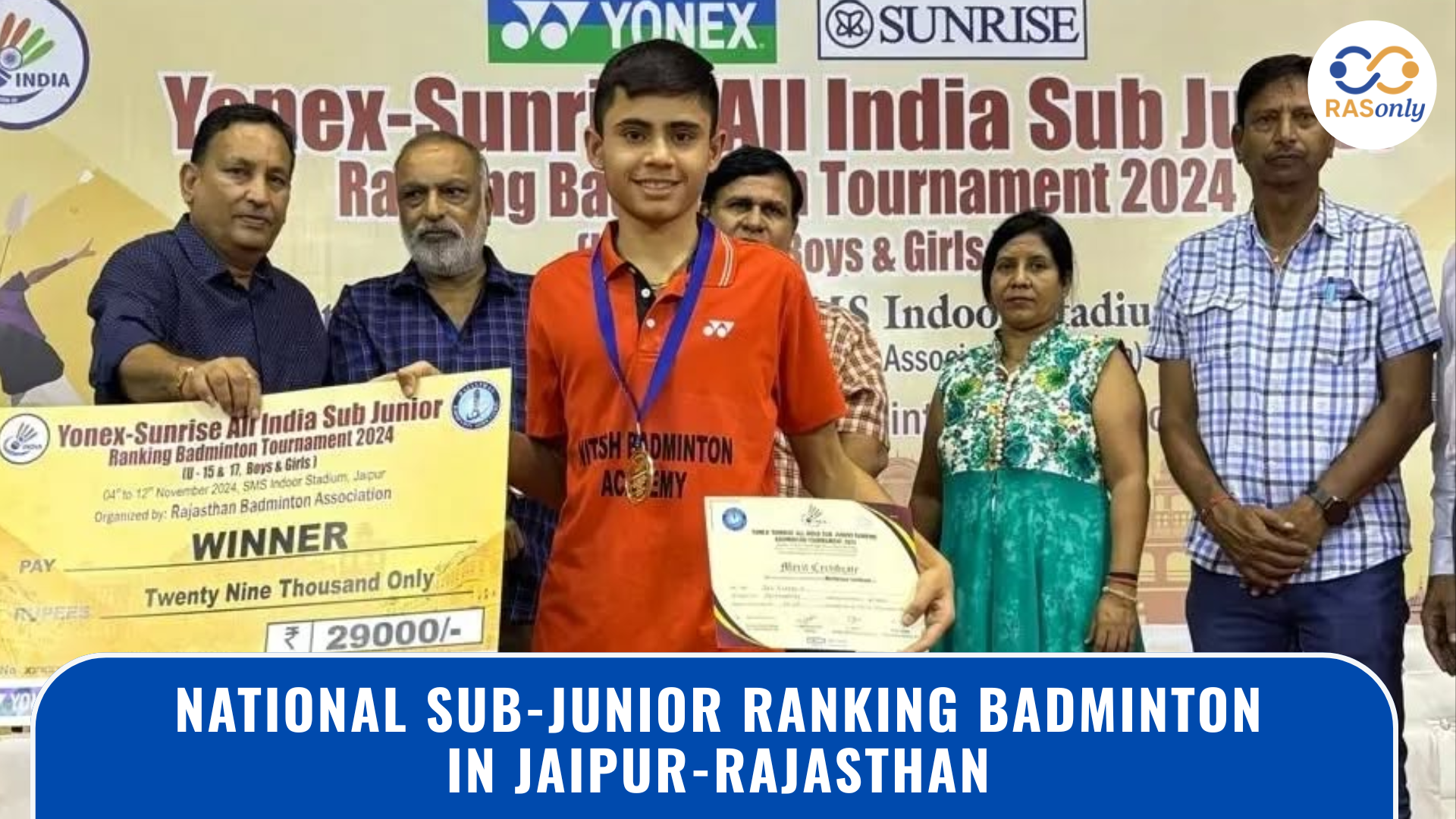
Jaipur Badminton: 72-Minute U-15 Final Creates Record
February 06, 2026👉🏻 Register Today to Join Classes! 👍🏻
- Team RASOnly -
🎯 Benefits of RASOnly Coaching:
- ✅ 1:1 Mentorship with RAS Officers
- ✅ Experienced and Expert Faculty
- ✅ Free Library Access
- ✅ Daily Minimum 4 Hours Must
- ✅ Comprehensive Study Material
- ✅ Regular Tests & Performance Analysis
- ✅ Personalized Guidance & Doubt Solving
- ✅ Online & Offline Class Options
- ✅ Affordable Fees with Quality Education
Key Highlights:
- 👉🏻 3-Day Refund Policy
- 👉🏻 New Batch Starting from 04 August
- 👉🏻 Registration Amount: Only ₹1000




